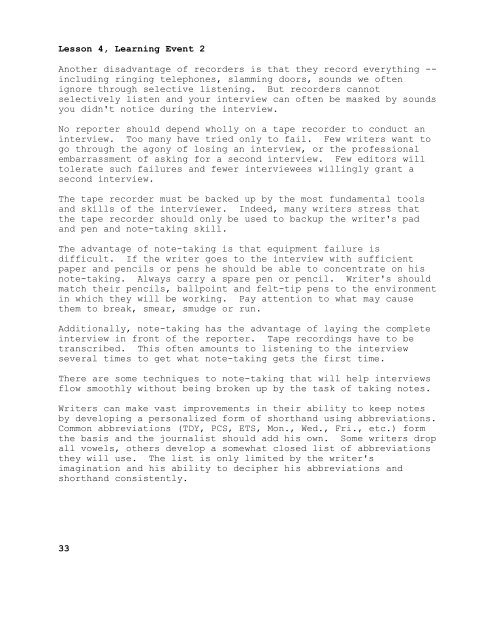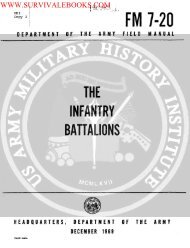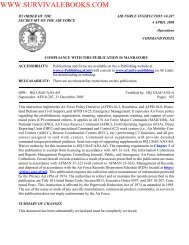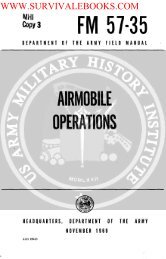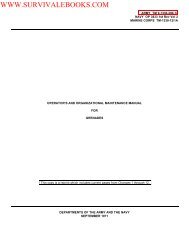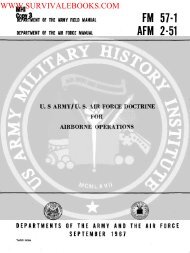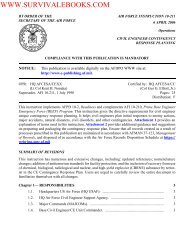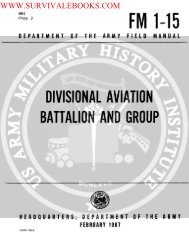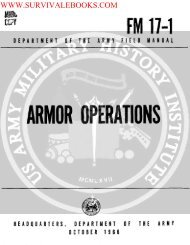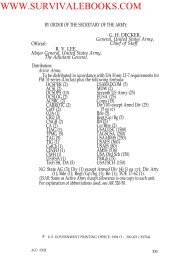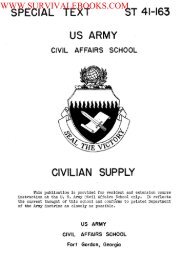US Army Journalist - Course - Survival Books
US Army Journalist - Course - Survival Books
US Army Journalist - Course - Survival Books
- No tags were found...
Create successful ePaper yourself
Turn your PDF publications into a flip-book with our unique Google optimized e-Paper software.
Lesson 4, Learning Event 2Another disadvantage of recorders is that they record everything --including ringing telephones, slamming doors, sounds we oftenignore through selective listening. But recorders cannotselectively listen and your interview can often be masked by soundsyou didn't notice during the interview.No reporter should depend wholly on a tape recorder to conduct aninterview. Too many have tried only to fail. Few writers want togo through the agony of losing an interview, or the professionalembarrassment of asking for a second interview. Few editors willtolerate such failures and fewer interviewees willingly grant asecond interview.The tape recorder must be backed up by the most fundamental toolsand skills of the interviewer. Indeed, many writers stress thatthe tape recorder should only be used to backup the writer's padand pen and note-taking skill.The advantage of note-taking is that equipment failure isdifficult. If the writer goes to the interview with sufficientpaper and pencils or pens he should be able to concentrate on hisnote-taking. Always carry a spare pen or pencil. Writer's shouldmatch their pencils, ballpoint and felt-tip pens to the environmentin which they will be working. Pay attention to what may causethem to break, smear, smudge or run.Additionally, note-taking has the advantage of laying the completeinterview in front of the reporter. Tape recordings have to betranscribed. This often amounts to listening to the interviewseveral times to get what note-taking gets the first time.There are some techniques to note-taking that will help interviewsflow smoothly without being broken up by the task of taking notes.Writers can make vast improvements in their ability to keep notesby developing a personalized form of shorthand using abbreviations.Common abbreviations (TDY, PCS, ETS, Mon., Wed., Fri., etc.) formthe basis and the journalist should add his own. Some writers dropall vowels, others develop a somewhat closed list of abbreviationsthey will use. The list is only limited by the writer'simagination and his ability to decipher his abbreviations andshorthand consistently.33


